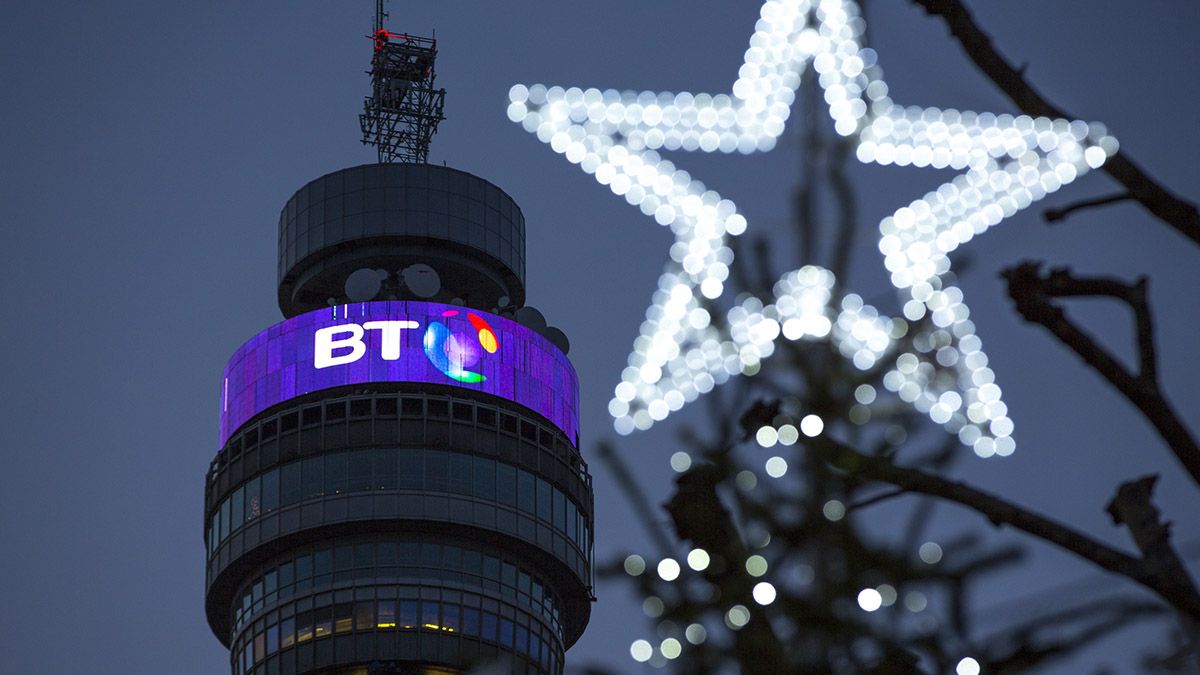BT’s [BT] share price has rocketed 25% since June despite a torrid start to the year. This is in stark contrast with the wider FTSE 100, which has dropped 12% over the same period, as Brexit-fuelled political and economic uncertainty take hold.
Helping investor confidence is news that ex-Worldpay boss, Phillip Jenson, will take over as CEO from incumbent Gavin Paterson. On Paterson’s watch, BT went through a £500 million accounting scandal, huge spend on Premiership Football rights and a £14 billion pension deficit.
What’s been happening with the share price?
Between January and June, BT’s share price tumbled over 25%, before rallying to 264.65 at the start of November. At the close of Friday’s session, the stock was trading at 251.55, down 9% on the year, but well away from the June lows that saw the share price touch 201.55.
Recent earnings have been good, with November’s Q2 results seeing £1.3 billion in profit before tax in the 6 months up until 30 September. This was up 2% on the year and helped the stock rise 9% after the announcement was made.
25%
BT share price decline between January and June 2018
What’s been driving the BT share price?
1. The new CEO effect
A new CEO can be like a new football manager, instilling a renewed sense of confidence in a company. Previous CEO Patterson oversaw a 3% rise in earnings for the first half of 2018, and an EBITDA of £3.67 billion. Revenue, however, fell 1% as the company was forced to find £2 billion to plug a gap in its pensions scheme.
Since October’s announcement that Phillip Jensen was to take the top job, shares have risen 9% as investors hope for stability at the top.
2. Operational changes
Back in May, BT announced it was to axe 13,000 jobs over three years to reduce costs by £1.5 billion, with 2,000 jobs going in the past quarter alone. The company is also to leave its historic St Paul’s headquarters where it has been based since 1874.
“We need to do this to be competitive in the future. Compared with our peers we are frankly too complex and overweight. While I recognise the pain, ultimately it is the right thing to do for the business,” current CEO Gavin Peterson said at the time.
When Q4 numbers come out next year, shareholders will hope these operational changes will have lowered costs and bumped up earnings.
“We need to do this to be competitive in the future. Compared with our peers we are frankly too complex and overweight. While I recognise the pain, ultimately it is the right thing to do for the business” - Current CEO, Gavin Peterson
3. Growing competition
Since gobbling up EE in 2016, BT has positioned itself as a ‘quad play provider’ , offering mobile, TV, fixed line and broadband packages. It has also spent billions securing the rights to broadcast major sporting events, including Premier League Football matches.
Competition, however, is growing. Not only does BT have to compete with Virgin Media and Sky, but streaming service Amazon Prime has secured a three-year deal to show 20 Premier League games a year.
One thing working in BT’s favour is its commanding 37% share of the UK broadband market, according to figures from Morningstar. Sky (SKY.L) comes in at second place with 24%, followed by TalkTalk’s (TALK.L) 12%. Even then, the likes of Sky still need BT’s fixed-line network for their broadband packages.
Potential opportunity in BT’s share price
Brexit volatility is a concern right now for any stock that does business primarily in the UK. Yet BT’s share price has fared well over a politically turbulent November and December that has seen the prime minister delay a vote, contend with a no-confidence motion, and make several trips to the continent.
| Revenue % change, H1 YoY | +4% |
| Earnings per share (EPS) % change, H1 YoY | -1% |
| Performance YTD | -9.6% |
| Market cap | £24.63bn |
| PE Ratio (TTM) | 11.02 |
BT stock vitals, Yahoo finance, as at 17 December 2018
With a forward PE of 9.81, the stock provides a decent margin for risk-averse investors. Throw in a Q2 interim dividend payment of £4.62 a share and it’s a definite contender for investors looking for an income generating stock.
In the near term, the advent of 5G and BT’s dominant position in fixed and wireless networks all bode well. Investors will now be hoping that the new CEO doesn’t throw recent growth off course.
Continue reading for FREE
- Includes free newsletter updates, unsubscribe anytime. Privacy policy





